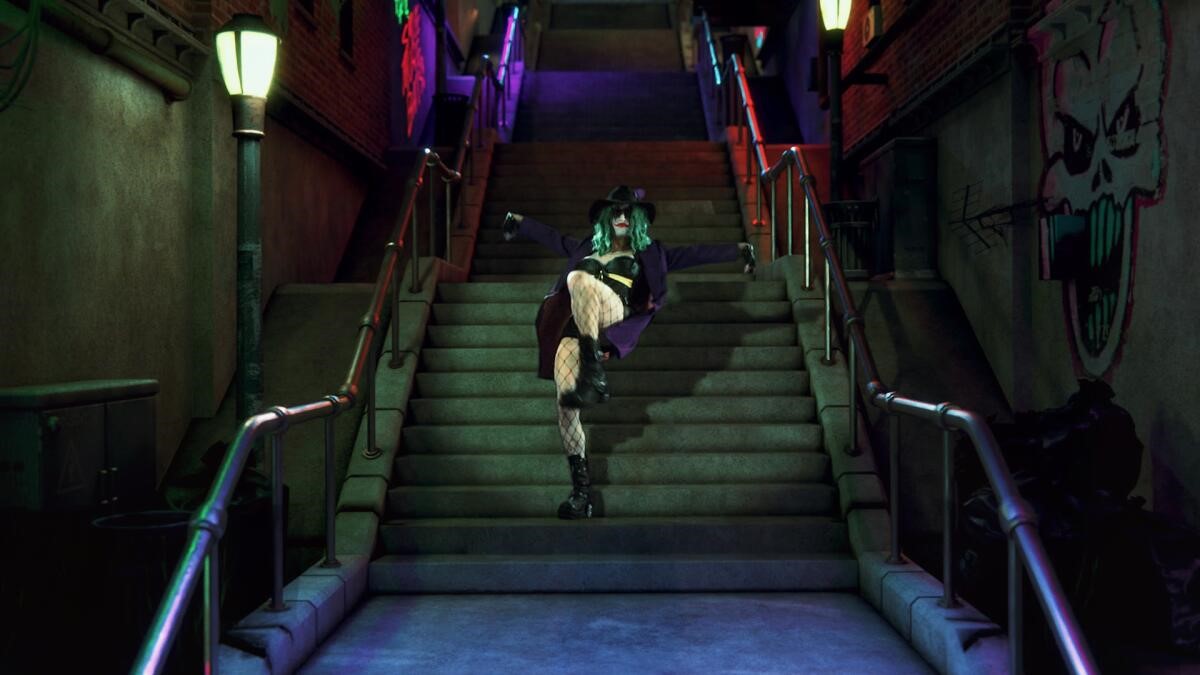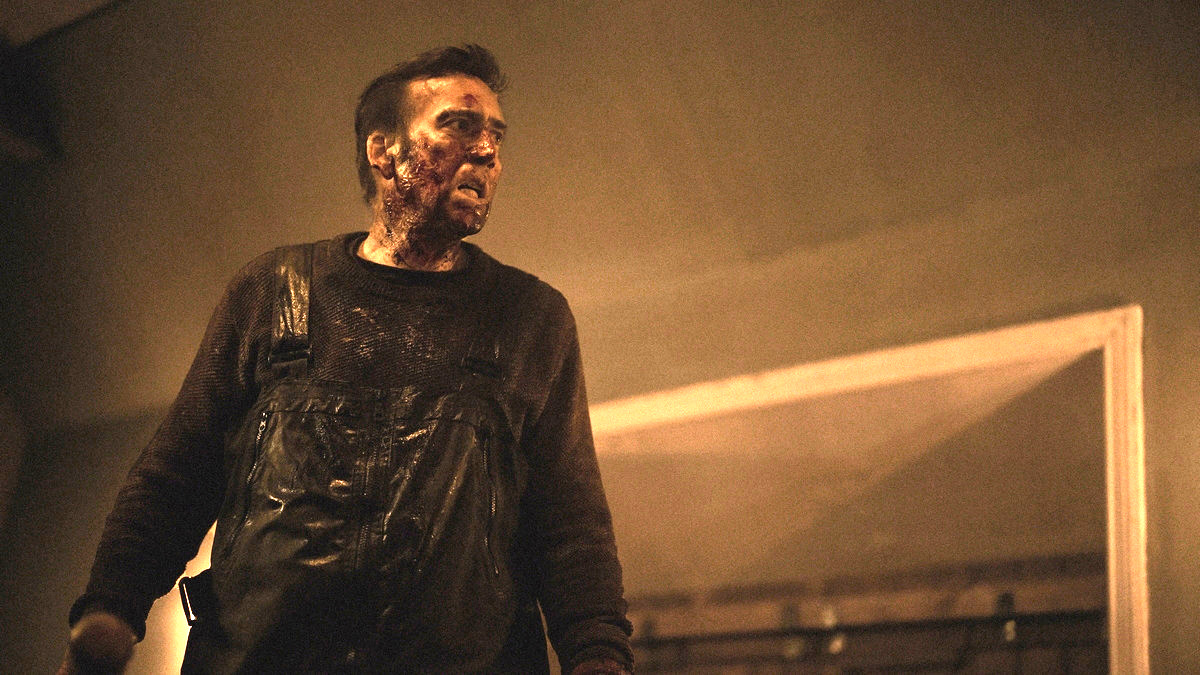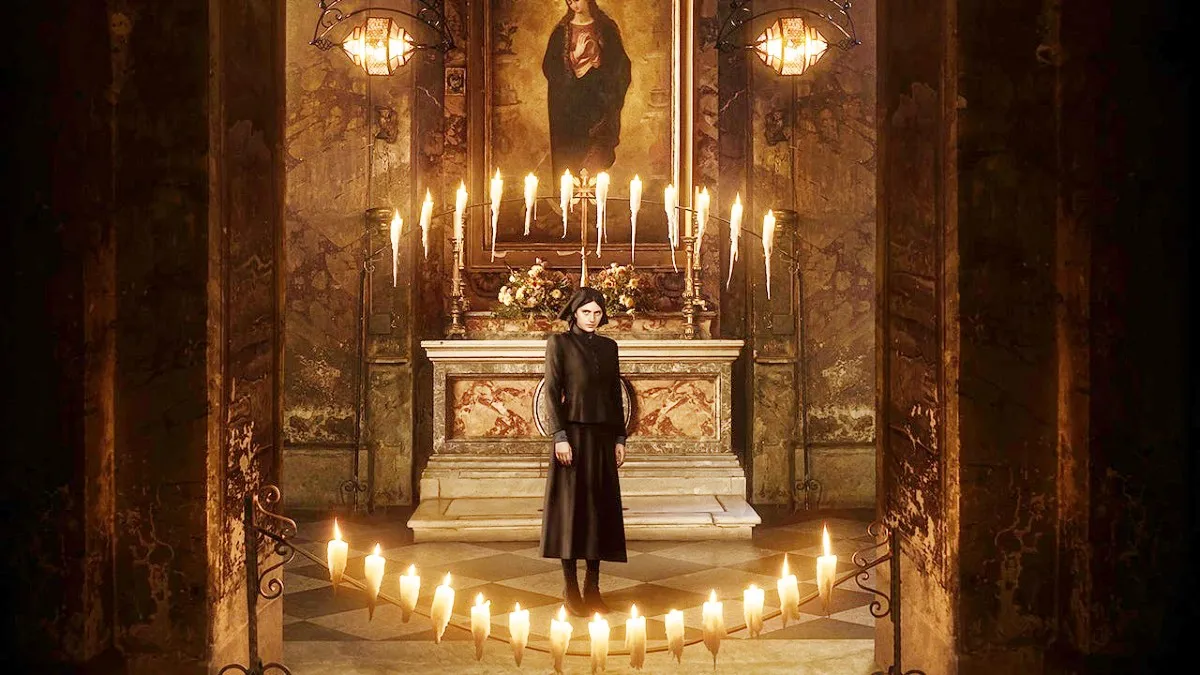
Television is so infested with series about cops, fictional and true crime, that to find one that steps out from the mould is a special circumstance. In its first three hours, HBO’s True Detective has separated from the procedural tropes by letting the crime take a back seat and the characters command the direction of the show. The biggest setback of a show with a look and pace so distinct from other detective series is that any element that seems like a rehash of what we can find elsewhere on the tube is only more glaring. While Matthew McConaughey remains as unhinged and magnetic as he ever has been as Rust Cohle, Woody Harrelson’s Martin Hart is just not as fascinating as his partner. Both actors are terrific, but the more “The Locked Room” gravitates on Hart’s home drama and adulterant ways, the more it turns into any other cop show.
In hour three in the Louisiana wasteland, Hart and Cohle are off to see if the mural at the destroyed church they found at the end of last week’s episode holds more clues to the identity of Dora’s murderer. They show up at a tent of salvation organized by the Friends of Christ (who used to preach from the destroyed chapel). Hart and Cohle have different perspectives of Minister Joel Theriot (guest star Shea Whigham) and the “old-time religion” that is so rampant in the region. Cohle mocks it, believing people who are so rapt by organized faith are weak. “These people are so frail, they would rather put a coin in a wishing well than buy dinner,” he says. Hart retorts with a defense: “Not everyone wants to sit in an empty room beating off to murder manuals.”
Their opposing views about the benefits of religion bring some fiery discussion into the show’s opening moments, with dialogue that stings. The dissent also clues the audience into the differences of the characters. Cohle sees no meaning in illusion or fallacy, since it neglects the darkness that destroyed and continues to shroud his own life. Hart is more defensive, believing that religion can do well to a lot of warmhearted people. Perhaps he hopes that it will bring him salvation.
As we learn later in the episode, Hart is genuinely dissatisfied with his life. Nearing 40 years old, he is in a stifled marriage with a job that increasingly comes up with empty results. Hart yearns for a vibrant, youthful life, and he is not comfortable with his responsibility as a father, of his daughters or his surrounding community. Despite the impression of a stable, happy family life, Hart is slowly crumbling under a mountain of regret of what his life could have been.
When “The Locked Room” shifts to Hart’s storyline, it is not as compelling as the dismal glimpses of Cohle’s shattered temperament from last week’s hour. Harrelson does bring much to the table, though, to a flawed, conflicted man trying to figure out his path. He gets a bitter thrill threatening his partner and defending his family when Cohle comes onto his property, but in a scene 15 minutes later, Hart storms into Lisa’s home and beats up her beau. It is intriguing to see the character’s hypocrisies – he believes in family values yet does not do much to uphold his own – and Harrelson does not miss a beat in the pivotal scene when he speaks with Maggie about his own reluctance for more responsibility.
However, the moment when he barges into Lisa’s, drunk and deranged, is a troubling one, as he uses his power as a cop to defy the law. When Hart tells Cohle that the difference between them is that Rust is incapable of admitting denial, it is telling – and the line of the episode – when his partner cleverly chimes in, “I doubt that.” Although Harrelson’s portrayal is damaged and definitely Emmy-worthy, he feels too tied to other TV cops that came before him that also had sour marriages and a hankering for drink and desire. “Seeing Things,” last week’s hour that focused more on Cohle’s hypersensitivity, was easily a more thrilling character study than this week’s episode.






